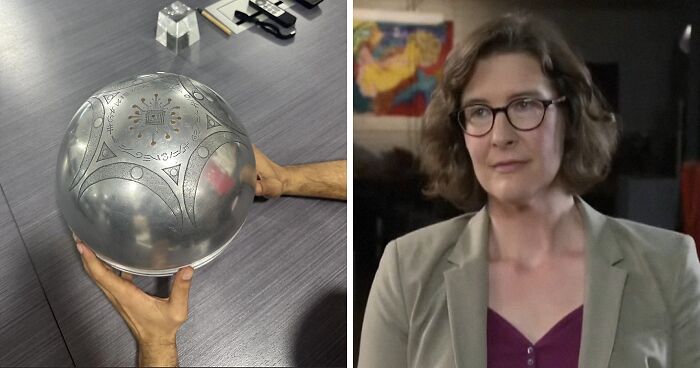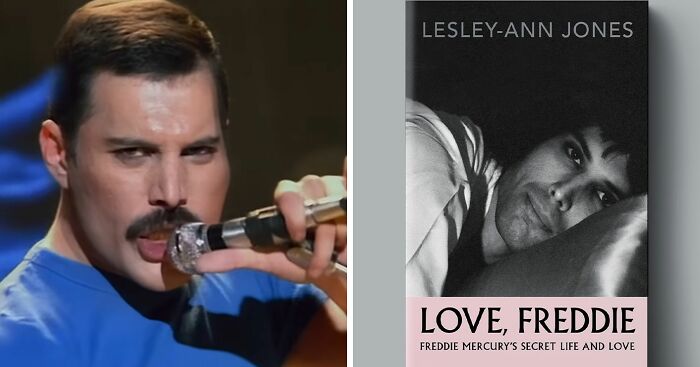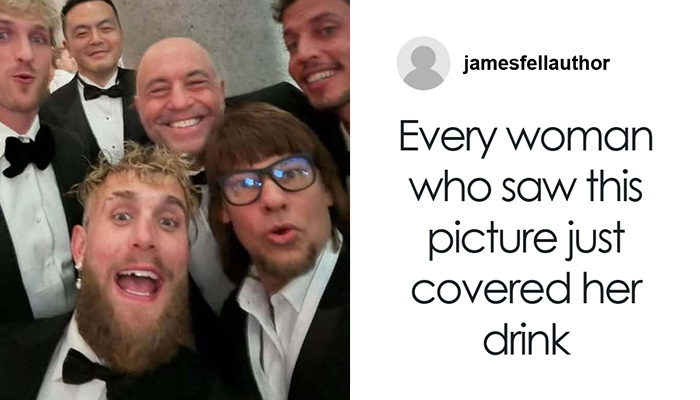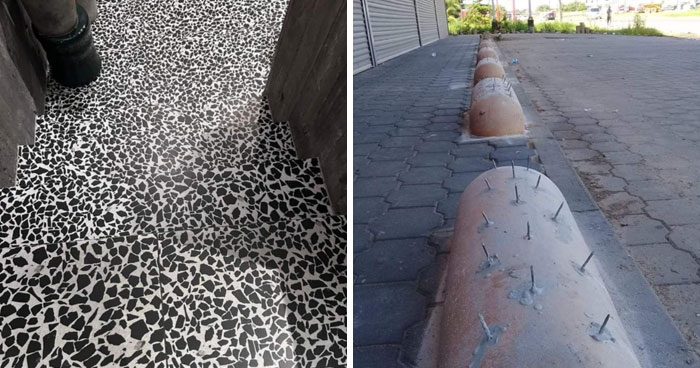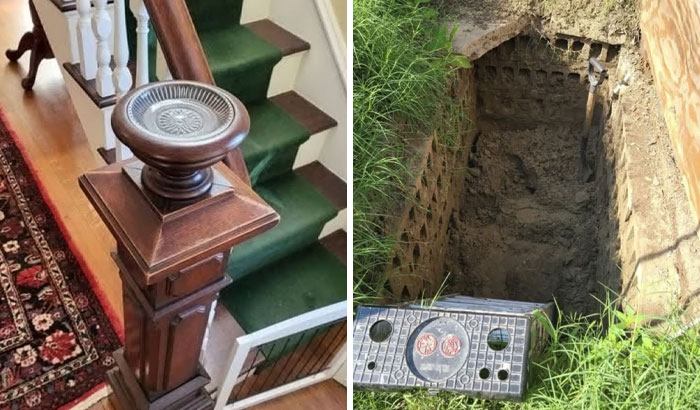
“Student Licked His Finger”: 28 Things That Were Discovered By Accident And Ended Up Being Useful
While our lives are affected by things happening around us each and every day, some of the strongest influences on a societal level are often new inventions or groundbreaking discoveries; and needless to say, there have been quite a few of them in history, and rather significant ones, too.
However, what’s not as evident is the fact that some of them were stumbled upon completely by accident. Members of the ‘Ask Reddit’ community have recently discussed such dumb luck discoveries and inventions, after one of them asked fellow netizens about things that would still likely be undiscovered today if it wasn’t for sheer luck. Redditors covered all sorts of instances, so if you’re burning with curiosity to learn more about them, wait no longer and scroll down to find the stories on the list below.
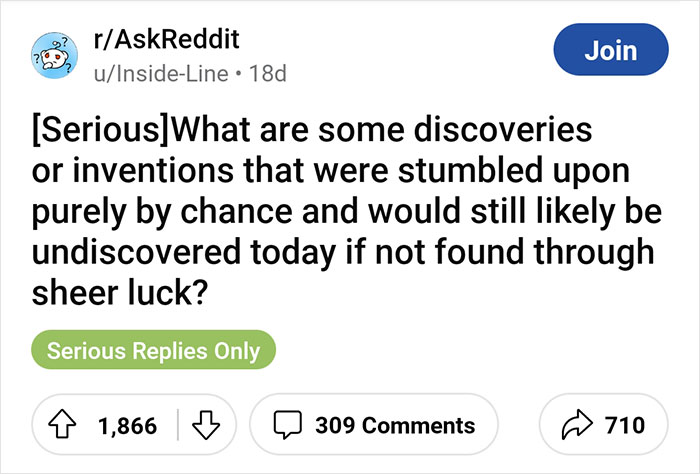
Image credits: Inside-Line
This post may include affiliate links.
 Most of the major ones honestly would have been discovered one way or another sooner or later, so I'm got to say something a little more obscure: There was once a dude who had the idea for a universal glue, one that would stick to anything - glass, wood, plastic, metal, any two solids that needed to be glued together. A lot of experimentation ensued; many ~~convincing~~ combinations of ingredients were tested, most subsequently rejected. Eventually, one substance was discovered. Would it stick to metal? Check. Glass? Check. Paper? Check. Plastic? Check. Wood? Check. Ceramics? Check. Skin even?? Still Check! And this glue was not only nigh universal, but the connection was instant, and the glue did not degrade by being exposed to air. And the connection it formed had the strength of... a wet tissue... It was sticky all right, but rather useless for holding anything much heavier than a piece of paper, and even that could be trivially pulled off by a young child. It was absolutely useless for anything that wanted to be secured. No amount of tampering would make this glue strong enough to be used for anything that wanted to stay glued. ... One quick rebranding later and the Post-It note was born.
Most of the major ones honestly would have been discovered one way or another sooner or later, so I'm got to say something a little more obscure: There was once a dude who had the idea for a universal glue, one that would stick to anything - glass, wood, plastic, metal, any two solids that needed to be glued together. A lot of experimentation ensued; many ~~convincing~~ combinations of ingredients were tested, most subsequently rejected. Eventually, one substance was discovered. Would it stick to metal? Check. Glass? Check. Paper? Check. Plastic? Check. Wood? Check. Ceramics? Check. Skin even?? Still Check! And this glue was not only nigh universal, but the connection was instant, and the glue did not degrade by being exposed to air. And the connection it formed had the strength of... a wet tissue... It was sticky all right, but rather useless for holding anything much heavier than a piece of paper, and even that could be trivially pulled off by a young child. It was absolutely useless for anything that wanted to be secured. No amount of tampering would make this glue strong enough to be used for anything that wanted to stay glued. ... One quick rebranding later and the Post-It note was born.
No, that can't be right. Like, I'm pretty sure Romey and Michelle invented post it notes. Lol
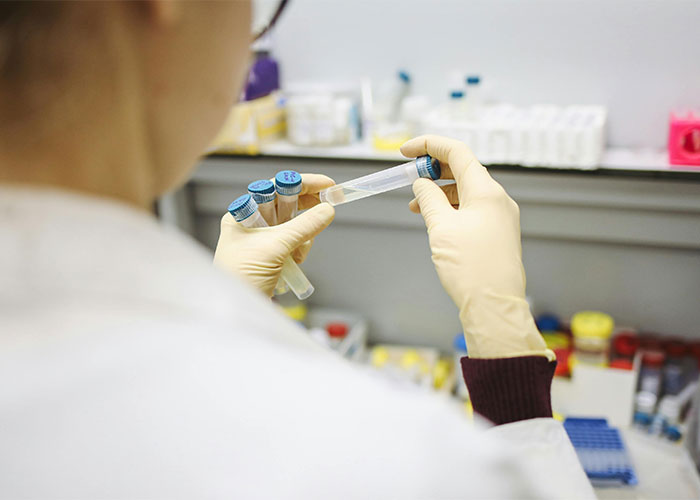 Reverse transcriptase which led to the development of hiv treatment was discovered by pure luck and the casual experimentation of a medical doctor and his friend in their basement lab because they enjoyed scientific research. The guy then later helped develop the first hep c vaccine. Really cool story though .
Reverse transcriptase which led to the development of hiv treatment was discovered by pure luck and the casual experimentation of a medical doctor and his friend in their basement lab because they enjoyed scientific research. The guy then later helped develop the first hep c vaccine. Really cool story though .
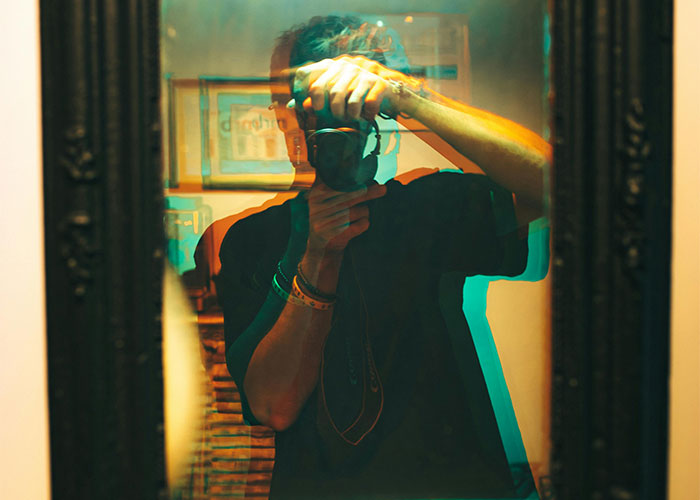 Im surprised I haven’t seen this one yet, but LSD was discovered on accident. Or at least its psychedelic effects were. In 1938 a chemist named Albert Hoffman who worked for a pharmaceutical company was trying to synthesize a respiratory and circulatory stimulant from the fungus ergot. After syntonization, he set it aside for 5 years before he took another look at it and absorbed the LSD into his fingertips. He started feeling the effects as he rode his bike home that day. Essentially being the first person to trip balls on Acid.
Im surprised I haven’t seen this one yet, but LSD was discovered on accident. Or at least its psychedelic effects were. In 1938 a chemist named Albert Hoffman who worked for a pharmaceutical company was trying to synthesize a respiratory and circulatory stimulant from the fungus ergot. After syntonization, he set it aside for 5 years before he took another look at it and absorbed the LSD into his fingertips. He started feeling the effects as he rode his bike home that day. Essentially being the first person to trip balls on Acid.
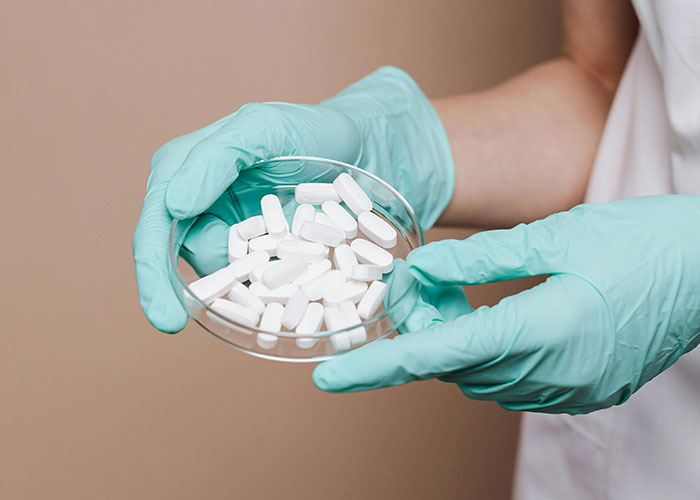 Penicillin gotta be one of them. Guy had his to now be "the cure" left open while he went on a vacation and once he came back, he noticed that the mold was suppressing the growth of bacteria.
Penicillin gotta be one of them. Guy had his to now be "the cure" left open while he went on a vacation and once he came back, he noticed that the mold was suppressing the growth of bacteria.
We probs wouldn't be alive if he didn't go on that vacation and leave the dish open.
Alexander Fleming was the scientist. One of his students, George Albert Paine, was the first to use penicillin to treat an eye infection.
 Bird migration. Was discovered when a large bird was found in the north with a projectile from the south stuck in it (neck i think). Before this, it was thought the birds hibernated at the bottom of water bodies or flew to the moon or other dumb s**t.
Bird migration. Was discovered when a large bird was found in the north with a projectile from the south stuck in it (neck i think). Before this, it was thought the birds hibernated at the bottom of water bodies or flew to the moon or other dumb s**t.
I have some extra information about that: The bird that was found was a stork with an arrow from an African tribe in its neck that somehow survived, came back and was found when it got too tired to fly from the injury. The most prevalent theory before this was found out is that birds would hibernate the way bears and rabbits do.
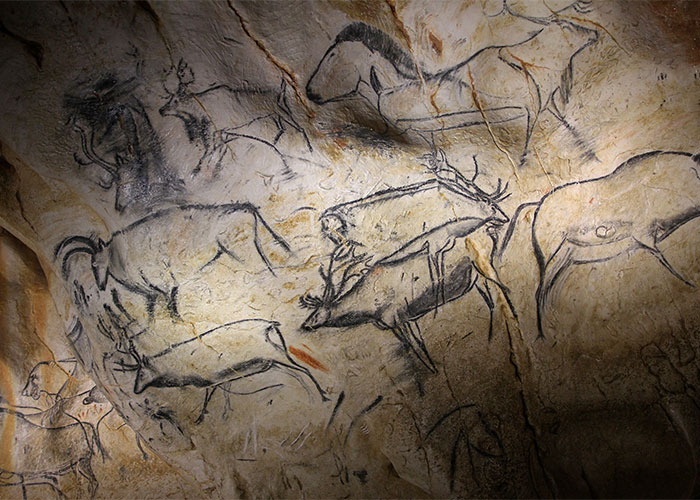 Considering that Chauvet Cave was only discovered in 1994 but the paintings inside of it date back about 32 000 years, it's easy to believe that such remarkable evidence of early human history could have remain buried for a lot longer, or until the entrance collapsed ever further and it was lost forever.
Considering that Chauvet Cave was only discovered in 1994 but the paintings inside of it date back about 32 000 years, it's easy to believe that such remarkable evidence of early human history could have remain buried for a lot longer, or until the entrance collapsed ever further and it was lost forever.
 The Hal Saflieni Hypogeum in Malta is a 5000 year old Neolithic temple which has three levels of architecture carved underground in the limestone. It’s a world heritage archeological site, and an amazing place to visit. It had been buried for maybe a couple of thousand years, and was discovered by accident in the early 1900s by someone digging out foundations for a house. They finished building the house before getting around to notifying authorities what they had found.
The Hal Saflieni Hypogeum in Malta is a 5000 year old Neolithic temple which has three levels of architecture carved underground in the limestone. It’s a world heritage archeological site, and an amazing place to visit. It had been buried for maybe a couple of thousand years, and was discovered by accident in the early 1900s by someone digging out foundations for a house. They finished building the house before getting around to notifying authorities what they had found.
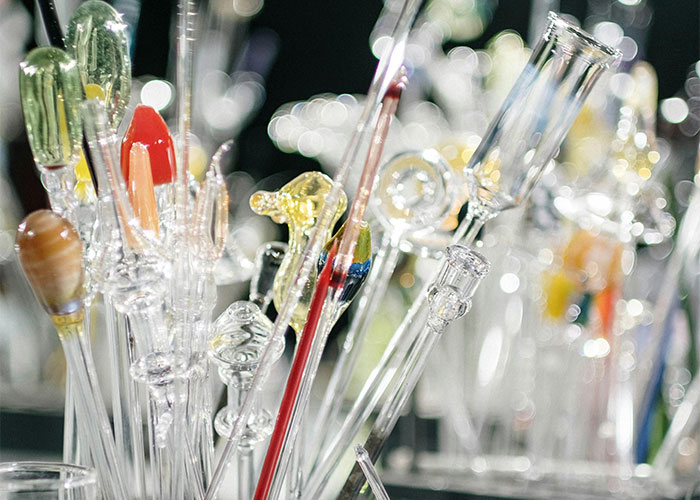 Glass is a very difficult material to make, and it’s thought that the ancients only discovered it once (somewhere in the Middle East), and it spread to other places from there (unlike writing and agriculture which seem to have developed independently in several places). The difficulty in glass is down to the temperatures required and finding an appropriate source of alkali that isn’t in a salt form. It’s some kind of astonishing coincidence that anyone put such random rare minerals together in an appropriate crucible and fired it to very high temperatures.
Glass is a very difficult material to make, and it’s thought that the ancients only discovered it once (somewhere in the Middle East), and it spread to other places from there (unlike writing and agriculture which seem to have developed independently in several places). The difficulty in glass is down to the temperatures required and finding an appropriate source of alkali that isn’t in a salt form. It’s some kind of astonishing coincidence that anyone put such random rare minerals together in an appropriate crucible and fired it to very high temperatures.
Glasses do exist in nature (lightning strikes on sand - a red herring since anyone trying to heat up sand to a similar temperature would have met with failure up until a hundred years ago or so; and obsidian for example), so some material scientist would have figured them out at some point in the Industrial Revolution or so.
But another twist we have in our timeline is glass blowing. This was invented by the Romans about a thousand years after glass production began. It’s a very unintuitive and creative way to shape glass, and requires an artistic genius to invent. Had glass only become an industrial material a hundred to so years ago, it’s almost certain that the blowing techniques that give us art and things like lightbulbs would be elusive still.
The final stepping stone is highly specialized glass such as the [dichronic](https://en.m.wikipedia.org/wiki/Dichroic_glass) properties of the [Lycurgus cup](https://en.m.wikipedia.org/wiki/Lycurgus_Cup), which is so rare as to be unique. The color of this glass depends on whether light is reflected off its surface or shining through it, appearing either green or red respectively. Created in 400 AD, recreations of this effect are exceptionally rare today and have never been mass produced. The effect is caused by insoluble gold and silver trace impurities in the glass ripening into nanoparticles of precise size and composition by heat treatment of the glass. Almost nothing in the world has these properties. Researchers are able to make one-off batches of this kind of glass, and even embed similar particles in [3D printed plastic](https://www.ncbi.nlm.nih.gov/pmc/articles/PMC6404512/), but carving a cup in glass is not yet automated and represents about two years of a skilled artisan’s time. In effect, manufacturing a glass of this color-effect and this carving is an invention that hasn’t quite occurred yet. .
 Here's one that most people won't know : an audio effect called Gated Reverb. It was an accidental discovery made by Phil Collins and Hugh Padgam while they were working on Peter Gabriel's third self titled album in 1980. The effect thickens up the sound of the drums considerably by applying, in order, a reverb, a gate and a compressor. It was the result of the studio having a natural reverb, and the intercom between the studio and control room having a gate and compressor on it to make it more usable. While the effect was used on Gabriel's album, it became truly known a year later, when Collins released his first solo album, *Face Value,* which opens with *In The Air Tonight.* The effect is what makes the crescendo of that song so stunning, in contrast to the comparatively dull sound of a Roland CR-78 that was the sole percussion in the track up to that point. .
Here's one that most people won't know : an audio effect called Gated Reverb. It was an accidental discovery made by Phil Collins and Hugh Padgam while they were working on Peter Gabriel's third self titled album in 1980. The effect thickens up the sound of the drums considerably by applying, in order, a reverb, a gate and a compressor. It was the result of the studio having a natural reverb, and the intercom between the studio and control room having a gate and compressor on it to make it more usable. While the effect was used on Gabriel's album, it became truly known a year later, when Collins released his first solo album, *Face Value,* which opens with *In The Air Tonight.* The effect is what makes the crescendo of that song so stunning, in contrast to the comparatively dull sound of a Roland CR-78 that was the sole percussion in the track up to that point. .
When I read reverb and Peter Gabriel I immediately had the sound of the drum in "In The Air Tonight"
 It's unlikely it would have remained undiscovered forever, but X-rays for medical imaging!
It's unlikely it would have remained undiscovered forever, but X-rays for medical imaging!
The first x-ray image was an accidental exposure of a photographic plate the scientist's wife was holding - they didn't realise the rays would interact with it like visible light, and when they developed it her bones and wedding ring were visible.
(This may have been the first clue they needed some safety precautions, too, but honestly all the early research into ionising radiation is terrifying. They didn't know what they were dealing with. The Curie's lab/offices are still tightly controlled due to all the radium and polonium contamination, for example.).
Why even bother writing a post about a discovery if you're too lazy to credit the person who made it? Roentgen discovered X-rays, Alexander Flemming discovered penicillin.
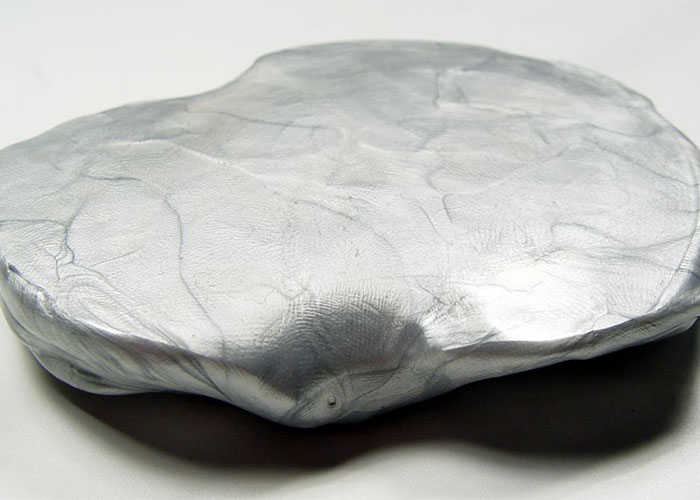 During World War II, a chemical engineer named James Wright was working for the U.S. War Production Board. Wright was attempting to create an inexpensive substitute for synthetic rubber at the General Electric Lab. In 1943, while working on an experiment, he accidentally dropped boric acid into silicone oil, and the result was a stretchy substance that was bouncier than rubber. Peter Hodgson, a businessman, saw the putty and instantly knew it could be a hit. He re-named the creation “Silly Putty” and marketed it as a toy in 1950.
During World War II, a chemical engineer named James Wright was working for the U.S. War Production Board. Wright was attempting to create an inexpensive substitute for synthetic rubber at the General Electric Lab. In 1943, while working on an experiment, he accidentally dropped boric acid into silicone oil, and the result was a stretchy substance that was bouncier than rubber. Peter Hodgson, a businessman, saw the putty and instantly knew it could be a hit. He re-named the creation “Silly Putty” and marketed it as a toy in 1950.
 Pyrex. Chemists and engineers at Corning Glass Works had developed the material, a strong and heat-resistant glass, for use in railroad lanterns and battery jars. Looking for additional uses for the material, one Corning R&D employee brought a sawed-off battery jar home. Presumably after cleaning it his wife used it to bake a cake, and noticed and shared that the cake baked much more evenly and quickly than traditional metal or ceramic pans, with the added bonus of being able to check on the progress of the bake through the clear glass, and here we are.
Pyrex. Chemists and engineers at Corning Glass Works had developed the material, a strong and heat-resistant glass, for use in railroad lanterns and battery jars. Looking for additional uses for the material, one Corning R&D employee brought a sawed-off battery jar home. Presumably after cleaning it his wife used it to bake a cake, and noticed and shared that the cake baked much more evenly and quickly than traditional metal or ceramic pans, with the added bonus of being able to check on the progress of the bake through the clear glass, and here we are.
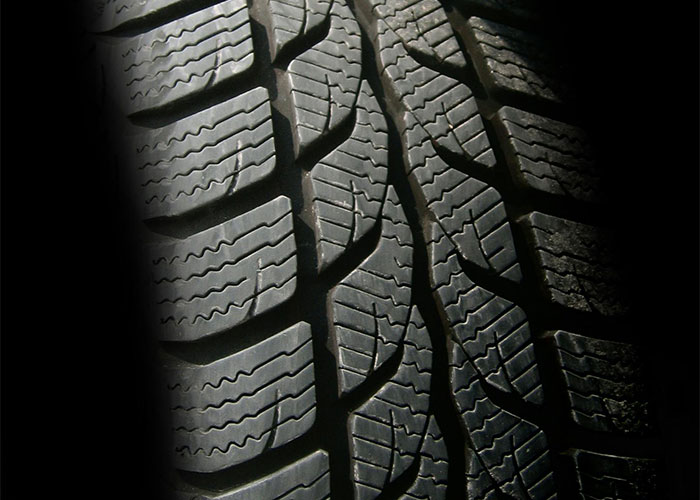 Rubber vulcanization. Charles Goodyear has searched for years how to make a use of rubber but the actual discovery of the vulcanization came out of luck after spilling a mixture on a hot stove.
Rubber vulcanization. Charles Goodyear has searched for years how to make a use of rubber but the actual discovery of the vulcanization came out of luck after spilling a mixture on a hot stove.
 The one I heard in chemistry class was that this chemist put some chemicals in a flask and placed a mechanical stirrer in it to stir overnight. The next morning the stirrer had stopped stirring and he found the chemicals in the flask was solid and thus ultrahard polycarbonate polymer was created.
The one I heard in chemistry class was that this chemist put some chemicals in a flask and placed a mechanical stirrer in it to stir overnight. The next morning the stirrer had stopped stirring and he found the chemicals in the flask was solid and thus ultrahard polycarbonate polymer was created.
OK, since my post is rather popular I will also add that the guy who found that the stirrer was stuck in the solid polycarbonate polymer in the morning broke the glass off the flask off then went around the lab holding the stirrer handle with the polycarbonate polymer mass on it and banged on the tables around the lab saying look what I discovered.
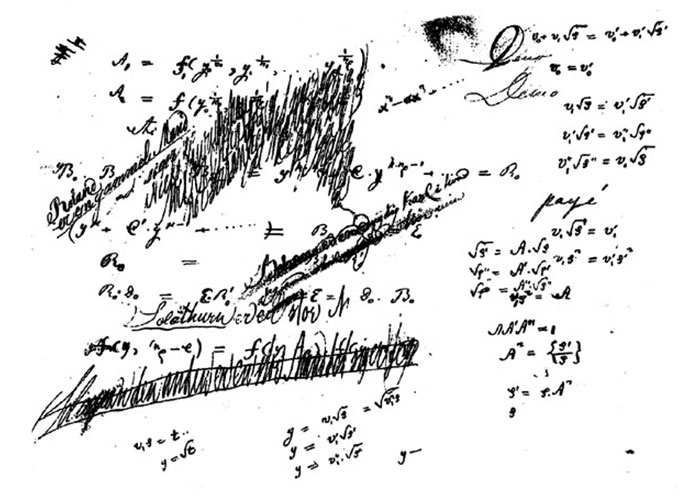 Oh I study math history, I can share some fun ones! Niels Abel is famous for a few things in mathematics, but the easiest one to explain is that he proved there does not exist a general formula to find the solutions to a polynomials where the highest exponent is 5 (i.e. there's no general formula to find all the solutions to something like x^(5) + x + 1 = 0). There's the quadratic formula for when your highest exponent is 2, there's another formula for when your highest exponent is 3, and another for 4, but Abel proved it's *impossible* to find one when the highest exponent is 5 or higher. It basically depends on the idea that some algebraic numbers cannot be simply represented with +, -, *, /, or exponents.
Oh I study math history, I can share some fun ones! Niels Abel is famous for a few things in mathematics, but the easiest one to explain is that he proved there does not exist a general formula to find the solutions to a polynomials where the highest exponent is 5 (i.e. there's no general formula to find all the solutions to something like x^(5) + x + 1 = 0). There's the quadratic formula for when your highest exponent is 2, there's another formula for when your highest exponent is 3, and another for 4, but Abel proved it's *impossible* to find one when the highest exponent is 5 or higher. It basically depends on the idea that some algebraic numbers cannot be simply represented with +, -, *, /, or exponents.
Now Abel proved this when he was 21, but Abel grew up in poverty and had no way of actually sharing this solution with others. In fact, the only reason he was able to attend college was because 3 professors offered to cover the cost because they recognized his talent. He could only afford to print 6 pages of his proof, so he had to heavily abbreviate everything, cut large chunks of his proof, *and* wrote it all in shaky French (since Norwegian isn't a common language and he wanted to share it with other mathematicians in Europe). He ends up mailing a few copies of this proof to a few mathematicians, but all of them dismiss it because it'd be an outlandish claim and nobody wanted to parse this difficult-to-read proof. In fact, Abel's letter was found unopened on Gauss's desk after Gauss died. So despite proving this major result, nobody knew about it except for Abel and the small group of mathematicians around him in Norway.
The professors at his university petitioned the government to help fund his travel around Europe to learn more math and share his work and surprisingly, the government decided to fund him. While in France, he stumbled across this guy named Crelle. Abel struck up a conversation with Crelle about math and they both started talking about unsolved problems. Crelle mentioned this problem about polynomials and Abel excited mentions that he solved that problem and showed him his proof. Crelle obviously couldn't make sense of Abel's proof, but he was so captivated by his conversation with Abel, he offered to print Abel's *full* proof. This print would later turn out to be the first publication by *Crelle's Journal*, one of the most influential journals in mathematics in all of European history. With this, people began to finally learn about Abel's proof and he began to gain some notoriety.
Unfortunately, this would not end well for Abel. Abel submits another major result (Abel's theorem) to this major publication in Paris, where a committee is formed to review the submission. Unfortunately, one of the reviewers, Cauchy, just straight up loses the paper. Abel, running out of funding for his travels, is forced to return home with no success on this publication. He also loses out on a major job opportunity that could've taken him out of poverty, all because he was deemed too young and his childhood mentor and friend, Holmboe, gets the job instead. He ends up dying of TB just a few years later at the age of 26.
Afterwards, another mathematician, Jacobi, is reading some of Abel's work and notices how great his work is. When he learns Cauchy lost Abel's paper, he pressures Cauchy to find this paper. Cauchy sends the paper off to be published posthumously, but it is lost at the printing press. It wouldn't be found for over 100 years later, in a whole other country somehow. Thankfully though, Holmboe published Abel's work separated to help share all of Abel's results and not let others forget him.
Abel's life is full of misfortune, but also great friends trying their hardest to share their friend's greatness. While Abel doesn't end up succeeding during his life, I can't help but enjoy seeing how much all of his friends cared about him, and his own ability to make friends randomly with so many people. Abel today is commonly mentioned in any undergrad group theory course because of how influential his work is on modern algebra. Without the help of people like Crelle, Holmboe, and Jacobi, we wouldn't be recognizing this work today.
I read it all. It wasn't a hard read and I like that the author was excited about his subject.
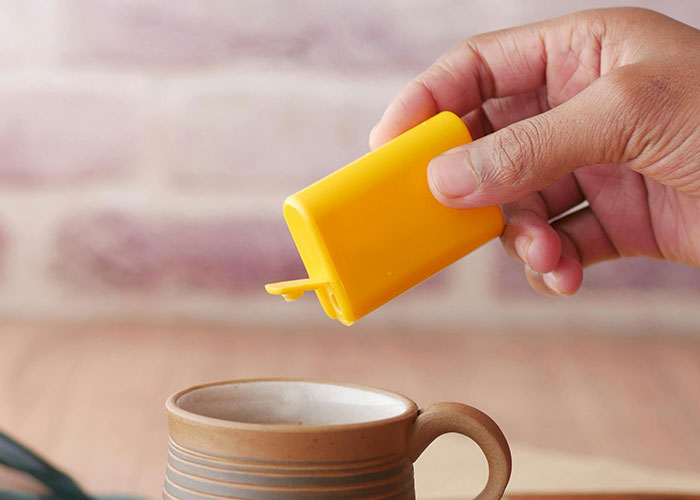 There's typically a lot of luck in artificial-sweetener discovery. Aspartame was part of anti-ulcer research, until someone licked his finger and found it was sweet. And sucralose was found to be sweet when a foreign student misread the instruction to "test" it.
There's typically a lot of luck in artificial-sweetener discovery. Aspartame was part of anti-ulcer research, until someone licked his finger and found it was sweet. And sucralose was found to be sweet when a foreign student misread the instruction to "test" it.
I wonder how many other chemical products were accidentally eaten because someone didn't understand what testing is
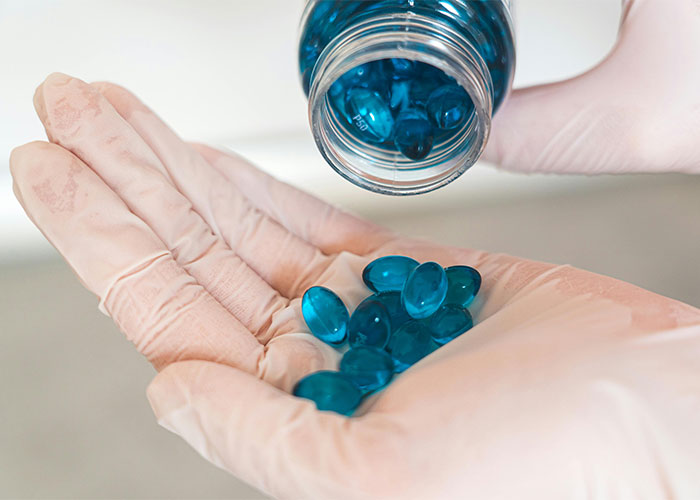 The current use for Viagra. It was originally meant for high blood pressure, then the men in the study noted a side effect.
The current use for Viagra. It was originally meant for high blood pressure, then the men in the study noted a side effect.
Seconc-Creative:
IIRC, while effective at lowering blood pressure, it was in a weird place where it was better than a placebo, but worse than actual blood pressure medication. However, its still sometimes prescribed to help control blood pressure.
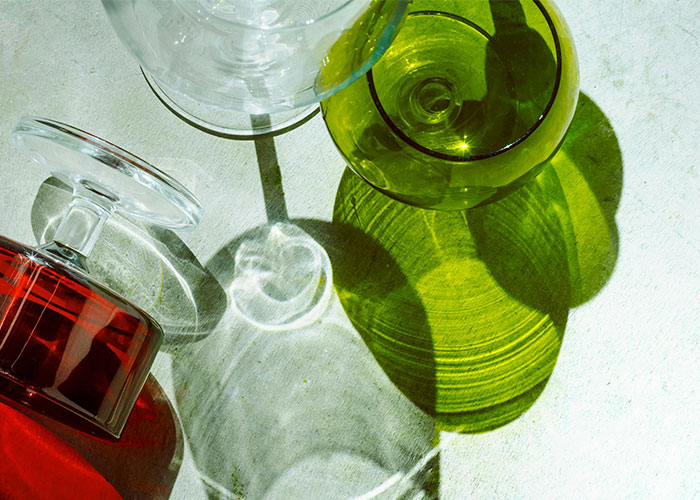 Color changing glass. Accidentally discovered in the 90’s by a bowl maker and was given free to the world. Dude could’ve been immensely wealthy being the only person who knew how to make a glass bowl change colors.
Color changing glass. Accidentally discovered in the 90’s by a bowl maker and was given free to the world. Dude could’ve been immensely wealthy being the only person who knew how to make a glass bowl change colors.
Wait, I thought the ancient Roman's had discovered a unique process for making glass ? Was it color changing glass ?
 I’m not sure if this counts, but Tetsuhiro Shikiyama (founder of Nippura, the company that makes thick acrylic glass for aquariums) invented the tech that glues/fuses multiple layers of clear acrylic when he dropped a udon noodle he was eating on some acrylic and had a hard time picking it up because it stuck.
I’m not sure if this counts, but Tetsuhiro Shikiyama (founder of Nippura, the company that makes thick acrylic glass for aquariums) invented the tech that glues/fuses multiple layers of clear acrylic when he dropped a udon noodle he was eating on some acrylic and had a hard time picking it up because it stuck.
Not new. Just inspiration. The combo of water and flour is called paste. It's been used for millennia as glue and as noodles (pasta means "paste" in Italian)
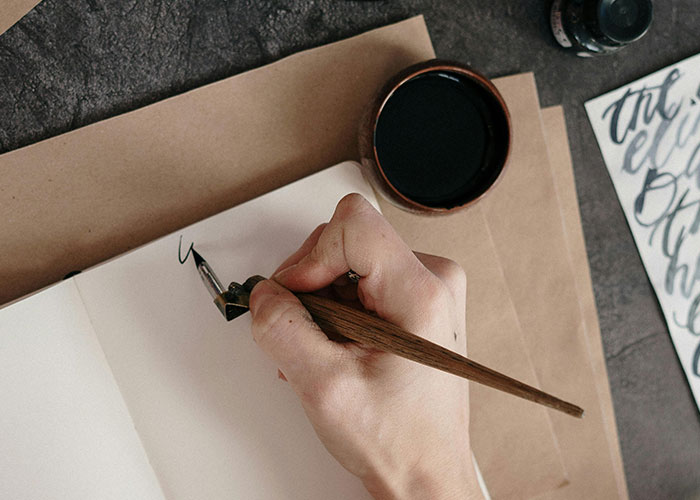 Czochralski process, the baseline of modern electronics as nearly all of the electronics nowadays are made on silicon grown with this process.
Czochralski process, the baseline of modern electronics as nearly all of the electronics nowadays are made on silicon grown with this process.
Guy wanted to dip his pen in ink, he dipped it in a crucible with molten tin instead.
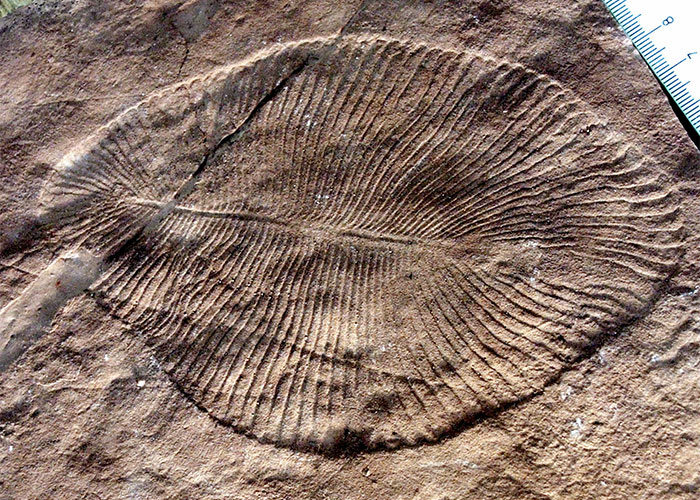 The Precambrian Ediacara fossils in Australia. They were discovered in 1946 by mining engineer Reginald Sprigg who habitually looked for fossils wherever he was. Although there had been mining in South Australia's Ediacaran Hills since the 1880s nobody had looked for fossils there before because: 1) much of the rock was sandstone, not the best mineral for preserving invertebrates; 2) the formation was Precambrian, which was considered earlier than Earth's first multicellular life.
The Precambrian Ediacara fossils in Australia. They were discovered in 1946 by mining engineer Reginald Sprigg who habitually looked for fossils wherever he was. Although there had been mining in South Australia's Ediacaran Hills since the 1880s nobody had looked for fossils there before because: 1) much of the rock was sandstone, not the best mineral for preserving invertebrates; 2) the formation was Precambrian, which was considered earlier than Earth's first multicellular life.
So, fossils discovered by someone who looks for fossils? Doesn't belong here.
 A brown dwarf called "The Accident". A guy, Dan Caselden, in the citizen science group I'm I'm found it on accident while looking at another object that looked promising. It didn't stand out in the larger context of the sample but was clearly a good candidate when looking at the other object more closely. To add on to the uniqueness of the discovery, it's the fastest moving near earth brown dwarf found and possibly one of the oldest. It's a major outlier for Y-class Dwarfs.
A brown dwarf called "The Accident". A guy, Dan Caselden, in the citizen science group I'm I'm found it on accident while looking at another object that looked promising. It didn't stand out in the larger context of the sample but was clearly a good candidate when looking at the other object more closely. To add on to the uniqueness of the discovery, it's the fastest moving near earth brown dwarf found and possibly one of the oldest. It's a major outlier for Y-class Dwarfs.
Check out Professor Dave o. YOUTUBE. he has lots of short informative videos on astronomy and cosmology and the classification of stars
 Maybe not undiscovered till today but probably good time later.
Maybe not undiscovered till today but probably good time later.
Dry cleaning. The way i got told there was an french chemist who did regularly experiments in the kitchen and got into trouble regularly with his wife. One day he did his thing and spilled some stuff and used one of the towel to clean up to prevent more discussions. The wife then discovered the towel was much cleaner than usual and so dry cleaning.
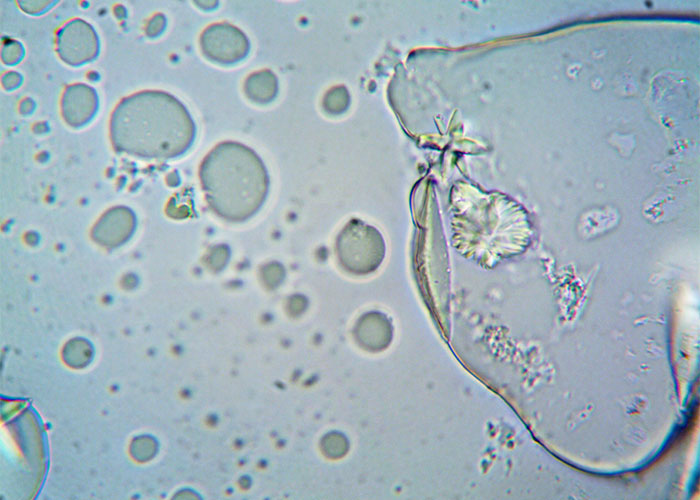 Parakaryon Myojinensis. It's not necessarily a very important discovery to most people, but it's an extremely unusual microbe that isn't quite a eukaryote or prokaryote. Biologists think that it could represent some sort of "stepping stone" between the two, or even an example of abiogenesis happening multiple times throughout the history of the earth. We've only found one of these, though, so we don't know much about it.
Parakaryon Myojinensis. It's not necessarily a very important discovery to most people, but it's an extremely unusual microbe that isn't quite a eukaryote or prokaryote. Biologists think that it could represent some sort of "stepping stone" between the two, or even an example of abiogenesis happening multiple times throughout the history of the earth. We've only found one of these, though, so we don't know much about it.
To simplify: Cells and organelles both have a membrane which controls their chemical environment, allowing for all the chemical reactions which make life work. Procaryotes are simple organisms, single cells without organelles. The thought is that at one point, a procaryote began living within another procaryote. The organisms mutliplied, and had descendents wherein a stable number of procaryotes lived within other procaryotes. Eventually they evolved to optimize the conditions for this "symbiotic" relationships, with the inner cells evolving to become mitochondria, plastics [Oops. Meant to type "plastids"], nuclei, etc. These new, more complex organisms are called "eucaryotes," and they all have so much in common that it's believed they all descended from the same symbiotic organisms. But pM meets the definition of a eucaryote, but doesn't have all those other traits in common, so the thought is that evolution of one organism living symbiotically within a cell of another organism happened more that just the one time.
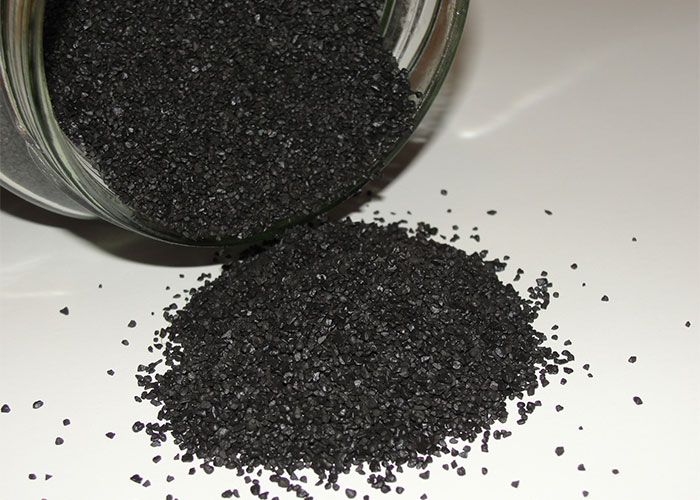 Gunpowder? One day some Chinese alchemist just wanted to brew a concoction and he end up paving the way for the death of billions.
Gunpowder? One day some Chinese alchemist just wanted to brew a concoction and he end up paving the way for the death of billions.
 The microwave oven.
The microwave oven.
BP why are you showing us a toaster oven when this says. Microwave oven. Who is picking these photos? BP is getting so lazy, most of the photos on this one don’t match the descriptions
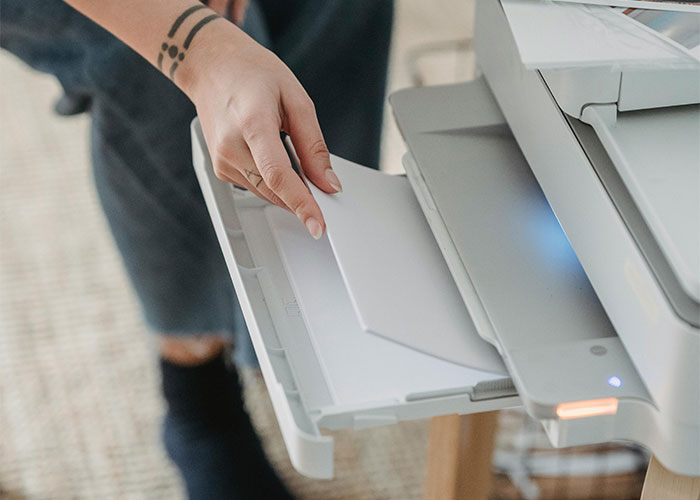 Inkjet printers. discovered by accident, when a Canon engineer set a hot iron next to his pen, only to find moments later that his pen has begun to leak ink.
Inkjet printers. discovered by accident, when a Canon engineer set a hot iron next to his pen, only to find moments later that his pen has begun to leak ink.
I guess I don’t know how inkjet printers work bc I’m not understanding how leaving a hot iron next to a pen (and making it leak ink) gave the idea for inkjet printer? Wouldn’t everyone already know that ink is liquid? Or that pens would melt near heat and leak. I must not understand a large component here bc I’m missing the reveal. Help!
 Champagne. At least according to Stanley Goodspeed in The Rock - "monks thought they were making white wine. Somehow the bottle carbonated. Voila**, champagne".
Champagne. At least according to Stanley Goodspeed in The Rock - "monks thought they were making white wine. Somehow the bottle carbonated. Voila**, champagne".
Linoleum was discovered by accident after a Scottish engineer left a tin of paint open overnight by accident.
Linoleum was discovered by accident after a Scottish engineer left a tin of paint open overnight by accident.

 Dark Mode
Dark Mode 

 No fees, cancel anytime
No fees, cancel anytime 






































